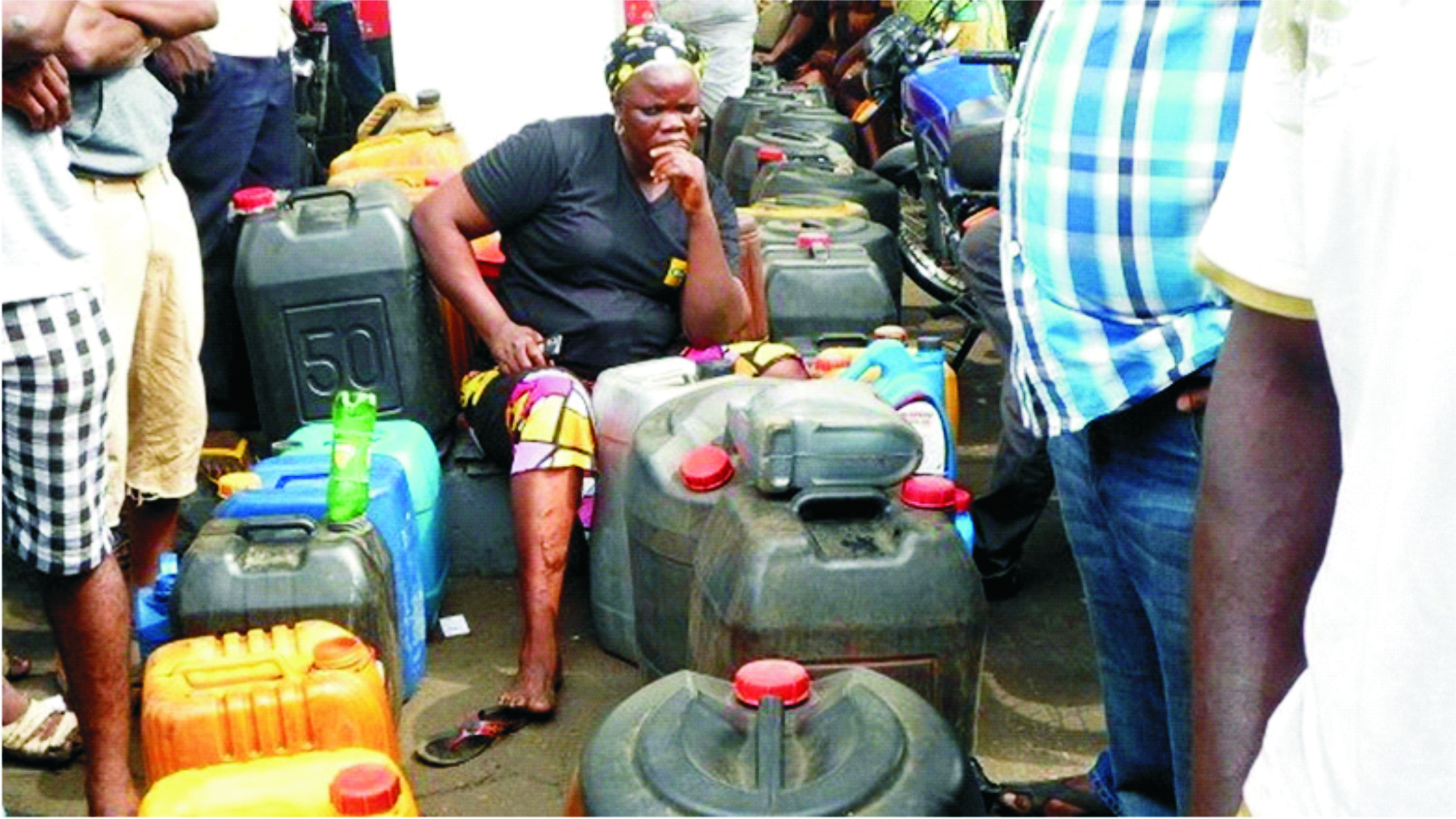Business
Fuel Scarcity: FG Vows To Sanction Marketers Rejecting PoS, Transfer

The Federal Government has commenced deployment of security agencies to filling stations across the country to enforce the use of Point of Sale (PoS) machines and the acceptance of bank transfers at the various outlets.
It vowed to deal with oil marketers who reject PoS machines or bank transfers from customers, stressing that the move became vital following reports that some filling stations were culpable as regards this development, despite the severe cash crunch nationwide.
The government’s directive to marketers came through the Nigerian Midstream and Downstream Petroleum Regulatory Authority (NMDPRA) in a statement issued in Abuja by the agency’s General Manager, Corporate Communications and Stakeholders Management, Kimchi Apollo.
The statement read in part, “It has come to the attention of the NMDPRA that some retail outlets are not accepting the use of Point of Sale machines at their filling stations due to the recent cash crunch brought about by the new naira design.
“The authority frowns at this recent behaviour which is causing untold hardship for Nigerians at a time when all hands should be on deck to assist the government in the transition to the new naira.
“All retail outlets are directed to ensure the free use of PoS and bank transfer for the sale of petroleum products to alleviate the suffering of customers at this critical time”.
The NMDPRA said it would work with law enforcement agencies to enforce the use of PoS machines and acceptance of cash transfers at retail outlets, stressing that oil marketers who flout the directive would be dealt with.
“The authority and security agencies will be at retail outlets to ensure compliance with this directive and any filling station found violating this directive will be duly sanctioned.
“We reassure the general public of our commitment to ensuring good quality service in the sale and distribution of petroleum products nationwide”, it stated.
The Tide reports that fuel scarcity has entered its third month since December with no sign of getting abated. Long queues of both private and commercial vehicles are still very visible in filling stations across the country with some filling stations selling between N300 and NN500 per litre, while many other shut down to customers.
However, the National President, Independent Marketers Association of Nigeria (IPMAN), Debo Ahmed, had announced last Wednesday that efforts were being made to clear the queues across the country.
In a notice issued to IPMAN members, he stated that following a meeting held on February 7, 2023, between the National Executive Council of the association and the Managing Director of NNPC Retail Limited, the national oil firm promised to set aside 140 million litres of PMS for independent marketers.
Business
Agency Gives Insight Into Its Inspection, Monitoring Operations

Business
BVN Enrolments Rise 6% To 67.8m In 2025 — NIBSS

The Nigeria Inter-Bank Settlement System (NIBSS) has said that Bank Verification Number (BVN) enrolments rose by 6.8 per cent year-on-year to 67.8 million as at December 2025, up from 63.5 million recorded in the corresponding period of 2024.
In a statement published on its website, NIBSS attributed the growth to stronger policy enforcement by the Central Bank of Nigeria (CBN) and the expansion of diaspora enrolment initiatives.
NIBSS noted that the expansion reinforces the BVN system’s central role in Nigeria’s financial inclusion drive and digital identity framework.
Another major driver, the statement said, was the rollout of the Non-Resident Bank Verification Number (NRBVN) initiative, which allows Nigerians in the diaspora to obtain a BVN remotely without physical presence in the country.
A five-year analysis by NIBSS showed consistent growth in BVN enrolments, rising from 51.9 million in 2021 to 56.0 million in 2022, 60.1 million in 2023, 63.5 million in 2024 and 67.8 million by December 2025. The steady increase reflects stronger compliance with biometric identity requirements and improved coverage of the national banking identity system.
However, NIBSS noted that BVN enrolments still lag the total number of active bank accounts, which exceeded 320 million as of March 2025.
The gap, it explained, is largely due to multiple bank accounts linked to single BVNs, as well as customers yet to complete enrolment, despite the progress recorded.

